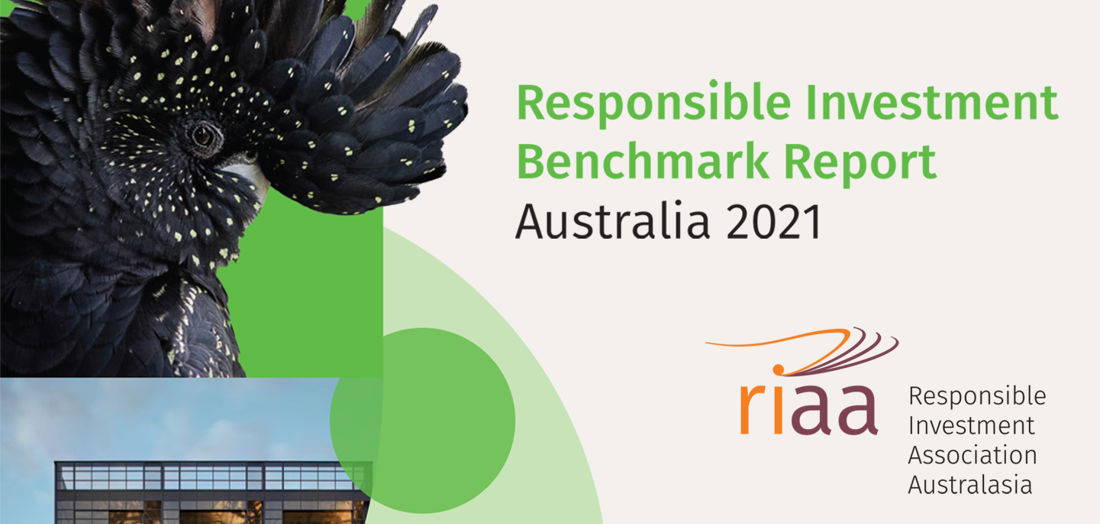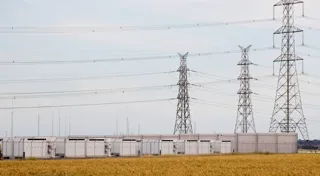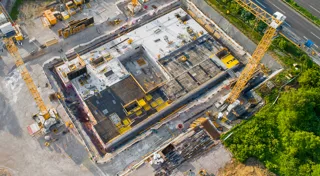CEFC named as Responsible Investment Leader

The CEFC is pleased to be named a Responsible Investment Leader by the Responsible Investment Association Australasia (RIAA) in its landmark annual study, the Responsible Investment Benchmark Report Australia 2021. We are proud to be recognised for our commitment to responsible investing and for our attributes as an investment manager and leader.
Responsible Investment Association of Australasia media release
1 September 2021
The market for responsible investments in Australia has continued to soar in popularity to $1.2 trillion in 2020, with responsible investment assets growing at 15 times the rate that overall Australian professionally managed investments have grown – the landmark annual study from the Responsible Investment Association Australasia (RIAA) has found.
The new RIAA report, researched in collaboration with KPMG, Responsible Investment Benchmark Report 2021 Australia, shows that the Australian responsible investment market reached new highs in 2020, increasing to $1,281 billion in 2020 from $983 billion in 2019.
Additionally, the proportion of responsible investment AUM to total managed funds grew from 31% to 40% in 2020, despite there only being a 2% increase in all professionally managed funds in Australia over the same period.
While the majority of the mainstream investment market claims to be responsibly invested, those funds engaging in leading practice responsible investment have seen an explosion in assets under management, growing 30% in 2020. This movement of capital has come at the expense of the remainder of the market, which has seen the value of assets shrink by 11% ($234 billion).
“Investment managers committed to responsible investment and leading practice are seeing money moving across into their funds, while those with ineffective policies and poor processes are being left behind as the capital moves out” said Nicolette Boele, Executive, Policy and Standards for RIAA.
“This dramatic shift of capital is being fuelled by changing consumer expectations, strong financial performance and the rising materiality of different social and environmental issues - from climate change to racial inequity.”
The report reinforces that responsible investments make good financial sense. In 2020, responsible investment international share and multi-sector growth funds performed on par with, or better than, the market, even though overall fund performance was down largely due to the impact of COVID-19 on economies worldwide.
The report shows that just one quarter of investment managers are practising a leading approach to responsible investment, highlighting a continuing gap between investment managers that claim to be practising responsible investing and those that can demonstrate they are.
“The gap between responsible investment leaders and others is particularly pronounced in the area of stewardship activity, the reporting of outcomes, and specific allocation of capital to target social and environmental outcomes.
“Australian investment managers can benefit from looking to their international counterparts for how they embed and commit to responsible investment: 6 of the 10 top scoring Responsible Investment Leaders are headquartered offshore.
“The promises and ‘ESG claims’ made by investment managers are coming under increased scrutiny. With regulation on sustainable investment on the rise both in Australia and globally, investors face increasing risks from legal action if claims made about their responsible investment products are not accurate” said Mark Spicer, Head of ESG & Responsible Investment at KPMG.
“This is an industry in transition. There are rapid developments taking place across countries, regions and markets that are resetting expectations of both companies and investment managers. New standards and regulations are moving the industry towards best standards of practice that contribute measurably to a more sustainable world. Australia is no exception to this trend” said Boele.
Climate change is front of mind for both the public and responsible investment managers. But negative screening approaches and the expectations of consumers don’t always align. For example, after fossil fuels, consumers seek products that screen for human rights and animal cruelty, while responsible investment managers focus on excluding tobacco, and weapons and firearms.
“There is an opportunity here for investment managers to design products which better match consumer values and issues of concern such as human rights, labour practices and animal cruelty” said Boele.
The report reinforces that ESG integration is becoming a foundation of prudent investment management. In 2020, 57% of investment managers have at least 85% of their AUM covered by an explicit and systematic approach to ESG integration, compared to just 41% in 2019.
With a rise in the claims of greenwashing, the report shows that investment managers are improving accountabilities by better evidencing how they are engaging with companies and voting on ESG issues, as well as communicating the real-world outcomes of their investments. In 2020 31% reported on both activities and outcomes from corporate engagement and shareholder action (an increase from 21% in 2019).
“The big challenge for the maturing Australian responsible investment market is to improve the evaluation and reporting of sustainability outcomes. Increasingly responsible investment is being defined not just by the strategies involved, but by the short and long term social and environmental impacts that investors are targeting and generating through their responsible investment approaches” said Boele.
The RIAA Benchmark Report is the most comprehensive review of the responsible investment sector in Australia. The 2021 report, the 20th such report, reviewed the investment practices of 198 financial institutions. “We have come an enormous way since the first Responsible Investment Benchmark Report was researched 20 years ago, where responsible investments totalled to just over half a billion dollars. 20 years on from here we hope all assets under management are invested responsibly and we are seeing the tangible outcomes in society as a result” said Boele.
Media release, 2021




